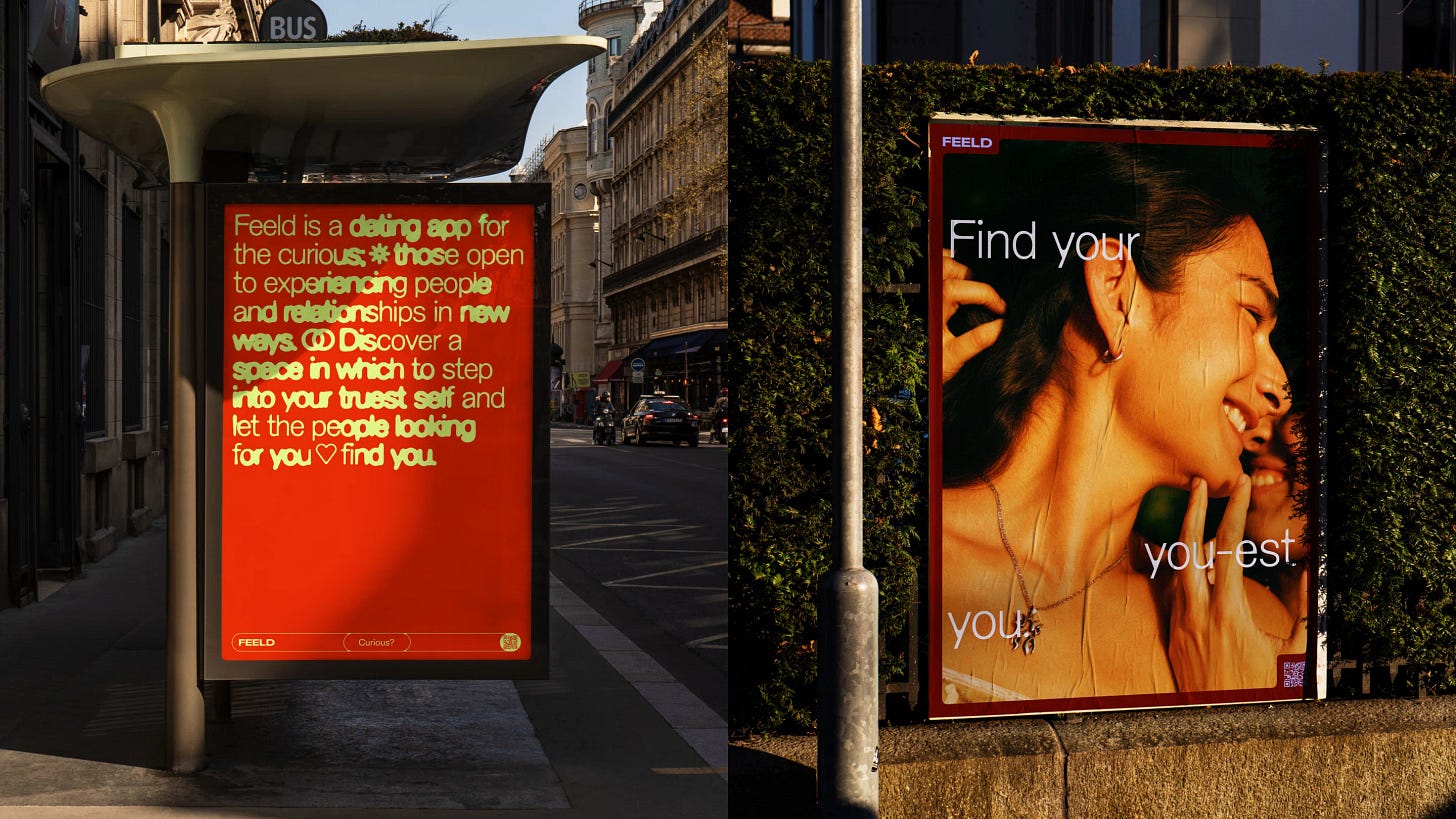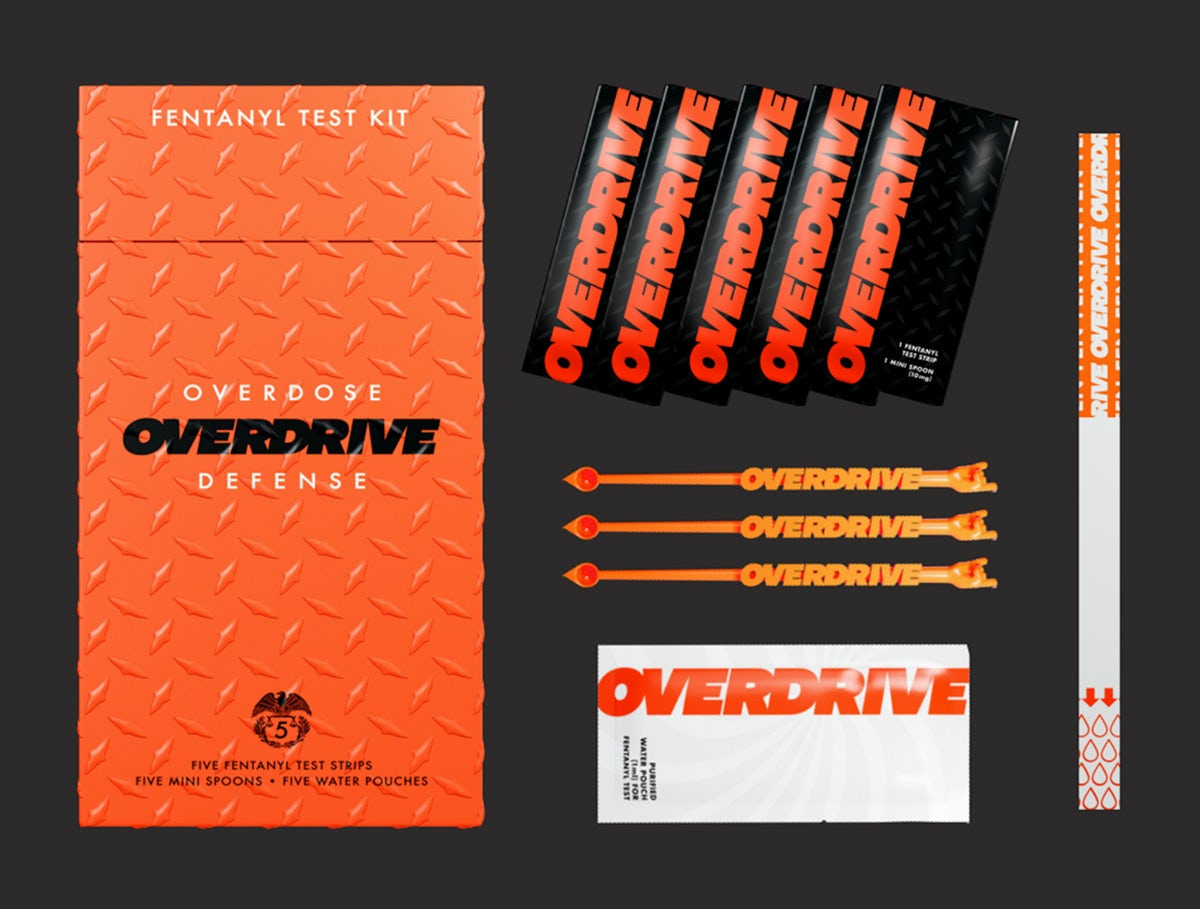When we wrote about A Fucking Magazine by Feeld last week it nudged something in my brain. A meeting, around the time we started S&T in 2019 with the editor of – back then – a relatively new dating app Feeld that was a safe space for exploring kink and, largely, threesomes. (It started as 3nder before a lawsuit from Tinder). I remember downloading it, swiping right and being fascinated by the fact that people would put their deepest sexual preferences out there with a profile photo for the world to see.
But Feeld were smart. They knew that these kinks, subcultures and relationships were already thriving behind closed doors (especially within queer communities) and that there wasn’t a space to openly explore them. They saw a taboo they could break.
Cut to 2024 and Feeld is mentioned in TV shows, group chats, and S&T’s Slack. Everyone and their grandpa is on there (seriously, loads of grandpas). They’ve played a vital role in de-shaming sexual preferences and exploration. And their latest positioning makes that open-minded individual the aspirational hero of their brand: the dating app for the curious.
Feeld isn’t the only brand seeing opportunity in taboos. A great article this week in the New York Times profiles the founders of Starface pimple patches’ foray into their new venture Overdrive Defense. “Their formula goes something like this: take a category associated with shame and stigma. Run straight at what makes it controversial. Then market the resulting product as a loud, confrontational conversation starter.” They’ve done it with pimples (Starface), the morning-after pill (Julie) and now set their sights on breaking the taboo around recreational drug use.
“Look, there is a demographic of the world that experiments with drugs, uses them occasionally, are a part of groups that use them somewhat regularly…” says the co-founder Brian Bordainick. “Those people are also dying.” Their drink-spike tests, fentanyl test strips and eventually the over-dose reversal drug naxalone aim to make it less of a chance.
Fairly, the article brings to light the mixed feelings among those who have spent years working in harm reduction. The very loud visuals, the sometimes problematic imagery and the fact that the strips are more expensive because you’re paying for a cool box. And the founders aren’t under any illusion that this will solve the problem. But ultimately, they do think it will save lives. “Can we get people to think differently about things that suck if we are able to emotionally resonate with them?”
Though articulated very differently, it’s ultimately the same question we asked when thinking about death – something that categorically sucks – with Octopus Legacy. Not only is death a taboo, but our brains are actually hardwired to avoid it. It means that people go their whole lives without planning what will happen afterwards. Octopus Legacy’s founder Sam felt this first-hand when his mother died and he was left, not only with the grief of losing her, but mountains of paperwork, bills and admin to deal with.
The tendency in branding is to see a taboo and want to write a big headline that shouts: DEAL WITH YOUR DEATH. SOMETHING ELSE REALLY BOLD AND SHOUTY WITH CAPITAL LETTERS THAT SHOWS YOU’RE A CATEGORY DISRUPTOR. But breaking taboos doesn’t always have to mean a loud and shouty brand or tone of voice. For Octopus Legacy we wanted to open up the conversation on death by showing people how meaningful planning for death can really be. That talking about death with the people you love can bring you closer together while you’re here – and gone. That it might feel overwhelming to write a will, but you could start with a question… What do I want to leave behind?
As more of us put more of ourselves out there, it can feel like there are no real taboos left for brands to break. But at the same time – especially as the world swings to the right – it’s important to make sure taboos don’t return. That old stigmas and stereotypes don’t reignite. To keep conversations going – the kind that would’ve been a no-go for mainstream marketing a decade ago.
Sex, death, drug use, the realities of motherhood – some brands might break barriers, but there’s an opportunity for more still to reshape cultural norms. In every taboo, there’s a chance to connect, educate and empower. And in the end, maybe that’s the most exciting part of brand building today: the ability to spark a conversation where there was once silence.
The Advice
You don’t necessarily need to be a brand built on taboo to make it part of your strategy. And with advertising news saying that breaking taboos drives 21% jump in attention for campaigns, you should think about how you can apply this thinking to your brand.
Say the unsaid: What are the things people experience in your category but don’t openly discuss? Often, the most relatable issues are the ones kept under wraps.
Explore hidden product uses: Are there ways people use your product or service that they don’t readily share? Understanding these hidden uses can reveal avenues for more genuine, impactful communication. Or really funny ones.
Tackle the elephant in the room: Consider the most sensitive or overlooked aspect of your product, service or industry. Is there something people hesitate to admit or discuss?
Humanise your messaging: A softer approach can sometimes be more powerful. Rather than shocking people, gently invite them to see the value in embracing these once-taboo topics.
The Interview
“In starting or facilitating conversations around taboo topics you have to be willing to get things wrong and then own that and learn from your mistakes. So, stay curious, stay respectful and seek to constantly be learning from people outside of your bubble world.”
Read our interview with Emma-Louise Boynton, the founder of Sex Talks – an award-winning live event series and podcast discussing sex, gender and intimacy.
The Vortex
Over the past 40 years, sperm counts have halved and sperm quality has declined “alarmingly”, with one in 20 men facing reduced fertility. So why don’t we talk about it?
Emma cited Cindy Gallop’s Makelovenotporn as one of her taboo-busting brands.
Remember that Valentine’s Day when Estrid told us to go f**k yourself?
This young female funeral director has over 100,000 social media followers and has been working in death since she was 19. Hear her on Woman’s Hour.
The How is Today podcast opens up conversations on death, grief and love one curious question at a time.
We need to talk about money. The book by Otegha Uwagba.
Overdrive’s packaging is anything but discreet. The Creative Lead talks to Creative Review.
If you’ve been sent this by a friend,
colleague or smart significant other,
consider subscribing so we reach you next time.







